Renal Diabetic Diet
Do you want to learn how to control your diabetes through a renal diet? Are you looking for tips and tricks that can help make managing the disease easier? If so, then this article is just what you need. We'll explore the basics of controlling diabetes through a renal diet and offer practical advice on making it work best for you!

For diabetic patients, their condition shouldn't mean sacrificing taste or nutrition in order to stay healthy. A renal diet focuses on maintaining optimal levels of protein, glucose, phosphorus, sodium, potassium, cholesterol and other important nutrients while still allowing individuals with diabetes to enjoy delicious meals.
It's all about balance - eating foods that are both nutritious and satisfying. With a few simple guidelines, anyone can master the art of diabetic-friendly cooking without compromising flavor or nutritional value.
Controlling diabetes with a renal diet requires commitment but it does not have to be overwhelming.
The key is to find tasty recipes that fit within your dietary requirements and build an arsenal of go-to dishes that will keep mealtime exciting yet manageable.
By following these steps, soon you’ll be able to confidently manage your health while enjoying food again! If you are serious about understanding diabetes and the renal diet, check out 7-day meal plan for kidney disease and diabetes.
Jump to:
- Overview Of Renal Diabetes
- Types Of Foods To Include In A Renal Diabetes Diet
- Guidelines For Creating Meals
- Which Nutrients Do I Need To Watch?
- Carbohydrate Portions Management
- Protein Limitations For CKD And Diabetes
- Managing High Blood Pressure And Cholesterol Levels
- Monitoring Blood Glucose Levels
- Common Mistakes To Avoid
- Nutritional Supplements For People With Renal Diabetes
- Managing Fluid Intake
- Role Of Exercise In Controlling Blood Sugar Levels
- Benefits Of Eating Healthy Foods
- Tips For Meal Planning And Preparation
- Importance Of Following The Recommended Diet
- FAQs or the Renal Diabetes Diet
- Take Control Of Your Health Through Renal Diabetes Diet
Overview Of Renal Diabetes
Renal diabetes, also known as kidney diabetes or diabetic kidney disease, is a type of chronic illness that impacts the functioning of the kidneys. It occurs when high blood sugar levels damage these vital organs and can lead to severe health complications over time.
Individuals with renal diabetes may experience symptoms such as increased thirst, urination frequency, fatigue and vision issues.
They may also be at risk for heart disease or stroke due to their condition. Fortunately, there are treatments available to help manage renal diabetes and reduce its effects on one's life. Overtime, you learn how to manage chronic kidney disease.
The first step in controlling this condition is understanding what it entails. Renal diabetes develops when an individual has uncontrolled high glucose levels for several months or more, leading to damage within the kidneys’ tiny filtering tubules and blood vessels.
As a result, the kidneys little by little lose their ability to filter the blood properly, which can lead to chronic kidney disease (CKD), with a significant decline in kidney function.
Diabetes-related kidney disease must be managed under close medical supervision since it tends to progress rapidly without proper treatment.
This management plan typically involves lifestyle changes such as diet modification and regular exercise; medication adjustments; fluid management; and monitoring of lab values like creatinine clearance rate (CrCl) or estimated glomerular filtration rate (eGFR). In some cases, dialysis might be necessary for advanced kidney disease.
With early intervention and adherence to recommended guidelines provided by healthcare professionals, those living with renal diabetes can enjoy improved quality of life while minimizing associated risk factors.
For More Recipes and Ideas --->> Get Your Free Meals and Recipes That Are Perfect for Pre-Dialysis Diets, Pre-Dialysis with Diabetes, or Dialysis Diets.
Types Of Foods To Include In A Renal Diabetes Diet
Making dietary changes to accommodate a diabetic kidney disease diet can be challenging but is necessary for managing blood sugar levels. Incorporating foods that are kidney-friendly and low in sodium is important for maintaining healthy kidneys and avoiding further damage.
Here are some types of foods to include in your renal diabetes diet:
Whole-grain carbohydrates
Eating whole grains like quinoa, oats, barley, brown rice, buckwheat, wild rice, wheat berries and bulgur provides an abundance of fiber which helps with digestion. It's also beneficial for controlling blood glucose levels as the body digests these carbs more slowly than refined grains.
Unsaturated fats
Foods such as fish, nuts and seeds provide essential fatty acids and omega-3 fatty acids needed by the body while helping reduce inflammation associated with type 2 diabetes. Avocados are high in monounsaturated fat which can help lower cholesterol levels.
Coconut oil contains medium-chain triglycerides which may be beneficial for weight management when consumed in moderation.
Plant-based proteins: Some plant sources that are great options for those on a renal diabetic diet include beans (pinto beans, black beans), lentils and chickpeas. These legumes contain protein along with vitamins and minerals required by the body such as iron and magnesium.
When creating meals it is best to focus on fresh ingredients rather than processed or pre-packaged products whenever possible. Adding plenty of vegetables into recipes not only adds flavor but nutrition too! Low-sodium seasonings like herbs & spices can add additional flavor without adversely affecting your health.
This will make meal preparation much easier knowing you don't have to worry about added salt contributing to hypertension or other issues related to chronic kidney disease or diabetes management.
Keeping track of what you eat each day will help you remain mindful of portion sizes while monitoring progress towards reaching goals set out by your healthcare providers.
By making small changes over time while limiting highly processed foods from your meals it's possible to enjoy delicious meals that meet the needs of a diabetic kidney disease diet. This includes having fun trying new recipes so you don't get bored eating plain food all the time!
With consistency and dedication it should become second nature after a while. This makes control over diabetes achievable - allowing one to live life without worrying about their health every step of the way!
Guidelines For Creating Meals
Creating meals for a renal diabetes diet can feel overwhelming. After all, it's not just about what you should eat; it’s also about how to do it in an efficient and enjoyable way that helps promote your health. But with some simple guidelines, crafting healthy and delicious meals doesn't have to be difficult.
First, focus on finding recipes that are specifically tailored to CKD meal planning or diabetic meal planning. This will help ensure that the foods used adhere to dietary restrictions imposed by the diagnosis.
For example, instead of using high-fat proteins like steak or bacon, look for leaner alternatives such as grilled chicken breast or fish filets. Additionally, consider incorporating more plant-based sources of protein into your renal diabetes meals such as edamame beans or tofu cubes.
The next step is to brainstorm ideas for inventive yet healthy dishes without relying too much on processed food items. Utilizing spices and herbs during meal preparation can add flavor and complexity to otherwise mundane ingredients—think roasted chickpeas seasoned with turmeric versus canned lentils from a jar.
Moreover, try experimenting with different cooking methods like steaming vegetables instead of sautéing them in oil - this will reduce fat intake while still providing a nutritious dish.
Finally, prepare ahead when possible so that meals don't become monotonous throughout the week.
Meal prepping saves time and effort but make sure there is variety among each day's menu —don't fall victim to eating the same thing every day! Consider batch-cooking grains (quinoa) or legumes (lentils), storing them in individual containers then combining them with fresh produce later on when ready to assemble a dish.
With these tips in mind, creating healthy meal ideas for a renal diabetes diet becomes easier than ever before! Get a closer look at this 7 day renal diet meal plan.
Which Nutrients Do I Need To Watch?
When it comes to controlling renal diabetes, diet is key. Knowing which nutrients to watch can be difficult, but with a few helpful tips you'll be on the right track in no time! Vitamins and minerals are important for maintaining good health and should be monitored closely.
Eating foods that contain fiber such as whole grains, fruits, vegetables and legumes will help manage blood sugar levels by slowing down digestion. Calorie intake should also be limited to ensure optimal weight control.
Moreover, sodium content needs attention when managing renal diabetes as it could lead to complications if too much is consumed.
It's also essential to stay hydrated while living with this condition as dehydration can worsen symptoms associated with renal diabetes. This means consuming plenty of fluids throughout the day so your body stays properly nourished.
These liquids don't necessarily have to come from water; fruit juices or other healthy beverages can suffice as well. However, it is important to stick to your daily fluid intake levels recommended by your doctor, depending on your condition.
Additionally, avoiding processed foods high in fat and sugar will go a long way towards keeping your glucose levels under control while preventing any further damage to your kidneys.
Making sure you understand what changes need to take place in order for you to live a healthier lifestyle is very important when dealing with this condition.
Educating yourself about food labels and nutrition facts is an excellent first step since these details provide valuable information about the contents of each item you purchase at the grocery store or restaurant menu.
By paying close attention to serving sizes and nutritional values you'll know exactly how much of each nutrient is being consumed daily - allowing yourself more control over what goes into your body during meals and snacks alike!
Carbohydrate Portions Management
It is no secret that diabetes can have a significant impact on the body and its health. Managing carbohydrate portions is essential for those with renal diabetes as it helps regulate blood sugar levels and reduce your risk of long-term complications.
By making some simple changes in your diet, you can ensure that you’re getting the nutrition you need while controlling your symptoms and preventing disease progression.
One key aspect of managing carb portions is understanding how much carbohydrates are in foods. Many processed foods contain high amounts of carbs so make sure to read labels carefully before eating them.
Foods like fruits and vegetables tend to be lower in sugars than their processed counterparts, so they are often better choices when trying to limit carb intake.
Additionally, portion control is important when monitoring carbohydrate consumption - instead of having three servings of pasta at one sitting, try cutting down to two or even just one serving size per meal.
This will help keep blood sugar levels stable throughout the day without feeling deprived of food.
Another way to manage carb intake is by limiting added sugars found in many packaged snacks such as cookies and candy bars.
While these types of snacks may taste good, they typically do not provide any nutritional value other than empty calories which can cause spikes in blood glucose levels if consumed too frequently. Give these kidney friendly snacks a try!
Instead, opt for healthier snacks such as nuts and seeds or fresh fruit which are both low glycemic index options that won't spike insulin production like sugary treats would.
Finally, consider adding more plant-based proteins into your diet such as beans and legumes since they also provide fiber and complex carbohydrates which help slow down digestion and promote steady energy release throughout the day rather than quick bursts followed by crashes due to refined sugars or white flour products like breads and pastas.
Ultimately, creating an overall balanced diet with proper portion sizes will support individuals with renal diabetes in maintaining normal blood glucose levels without sacrificing missing out on good food.
Protein Limitations For CKD And Diabetes
When it comes to managing CKD and diabetes, a healthy eating plan is essential. This includes understanding the importance of protein limitations for your renal diabetes diet.
To help you better understand how to control your dietary intake, we’ve put together this guide below that outlines the recommended daily protein limits for those with CKD and diabetes.
| Protein Limits | CKD | Diabetes |
| Grams/day | 0.8g/kg | 1.0 - 1.2g/kg |
| Percentage of Diet | 10%-15% | 20%-25% |
It's important to note that these amounts may vary depending on individual factors such as age, sex, and overall health status.
Your healthcare provider can provide more information about what is best suited for you specifically. It’s also important to remember not to exceed these recommendations when making food choices for your renal diabetes diet.
Eating too much protein can cause an increase in pressure within the kidneys that can lead to further kidney damage so be sure to stay within these guidelines!
When selecting foods from each category, strive for variety rather than focusing solely on limiting proteins every day. Try incorporating plant-based proteins like legumes, nuts, and seeds into meals instead of relying heavily on animal sources like eggs and dairy products alone.
Eating more fruits and vegetables are beneficial because they contain complex carbohydrates which will help keep blood sugar levels stable throughout the day. Additionally, try adding healthier fats like olive oil and avocados instead of saturated fats found in processed deli meats or snacks high in trans fat content.
By following these simple tips you can successfully maintain a nutritious renal diabetes diet while controlling necessary protein limits specific to CKD and Diabetes.
Managing High Blood Pressure And Cholesterol Levels
For adults with diabetes, the importance of managing high blood pressure and cholesterol levels can’t be overstated. When dealing with this health condition, there is a delicate balance between one’s health and wellbeing that must be maintained.
Fortunately, with proper knowledge and diligent effort in managing your renal diet, you have the power to take control of your kidney health in the long run.
The key lies in developing healthy eating habits while keeping track of your daily nutrient intake.
A proper diet for those with hypertension should include low sodium foods such as fresh fruits and vegetables; lean proteins like fish or chicken; whole grains instead of processed carbs; as well as dairy products like yogurt which are relatively low in fat content.
Does caffeine hurt your kidneys? It also helps to limit caffeine consumption, especially close to bedtime as this can interfere with sleep. Lack of which can have further adverse health effects for those with diabetes and hypertension.
When it comes to cholesterol management, incorporating soluble fiber into our diets has been shown to reduce LDL cholesterol (bad cholesterol) levels significantly by binding the bile acids within the digestive tract.
This process prevents reabsorption back into circulation thus lowering overall cholesterol levels in turn. Eating oats (oatmeal and kidney disease) regularly on top of other plant-based sources rich in dietary fibers – beans, legumes, and nuts– will help us achieve optimal results without having any adverse side effects.
Making small changes towards healthier food choices is essential for controlling both high blood pressure and cholesterol levels successfully long term. Little modifications made consistently over time adds up quickly - so don't let yourself get discouraged! T
Monitoring Blood Glucose Levels
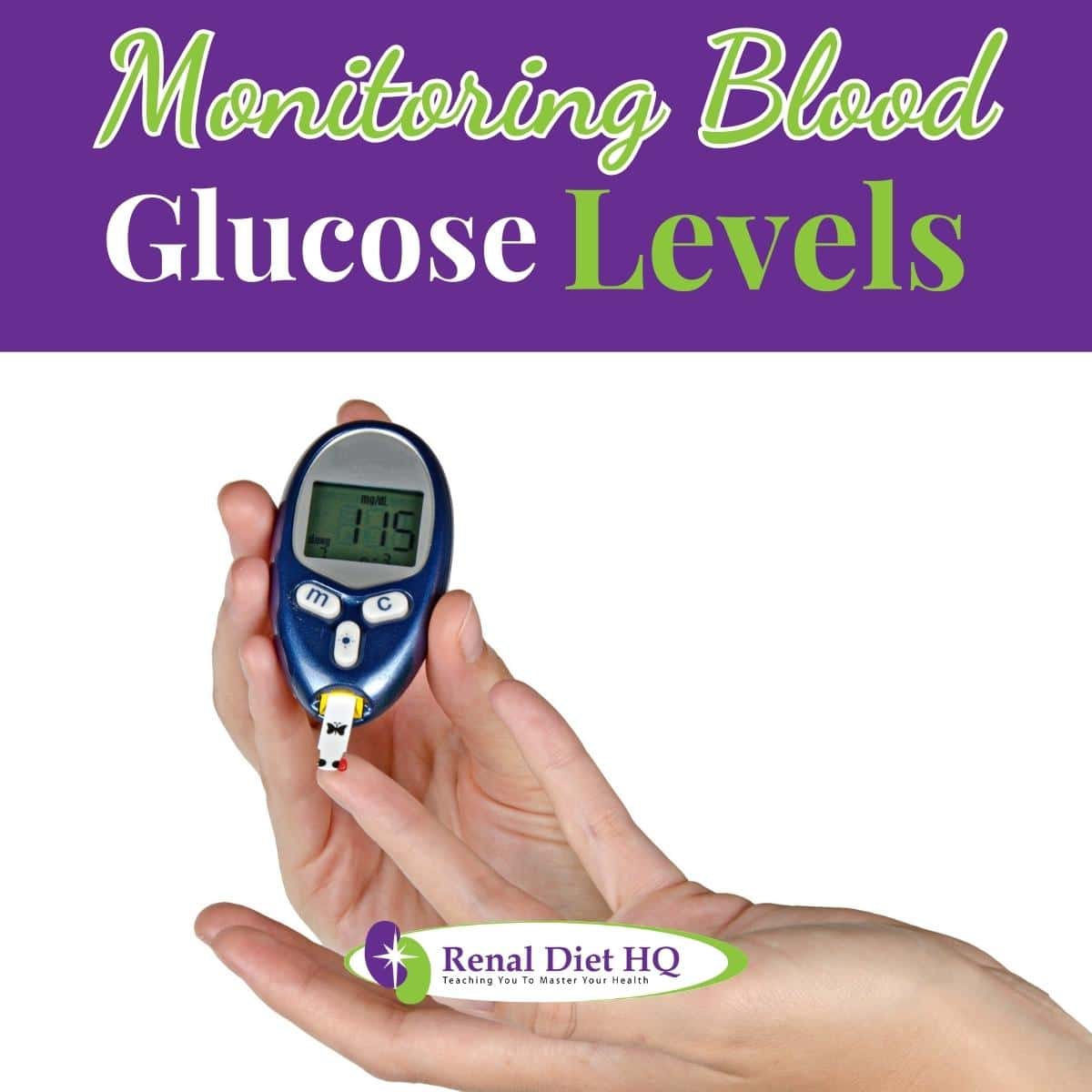
For those with diabetic patients who want to prevent progression of kidney disease, it's essential to monitor their blood glucose levels. This helps them better manage the disease and keep their health in check. It also allows them to make necessary adjustments in diet, exercise, and medications on a regular basis as needed.
Here are three key points in terms of monitoring your blood glucose levels:
- Test your fasting plasma glucose (FPG) level every three months.
- Monitor A1C values at least twice a year.
- Measure your postprandial (post meal) glucose two hours after eating each day or take weekly finger stick tests or continuous glucose monitors readings when advised by your physician.
To help maintain healthy renal diabetes blood glucose levels, you'll want to work closely with both healthcare professionals and nutritionists who can assess your current dietary habits and suggest ways of improving them if needed.
Your diet should include plenty of fruits and vegetables, whole grains, lean proteins such as fish, low fat dairy products, legumes and nuts while avoiding processed foods that contain added sugars and unhealthy fats.
Additionally, regular physical activity is recommended for people with diabetes to help reduce high blood sugar levels and improve overall cardiovascular health.
It's important to stay informed about advances in diabetic treatment options so you can choose the best plan for managing your condition over time. Doing this requires open communication between doctor visits so that any changes in lifestyle decisions or medication dosages can be quickly addressed if need be.
Keeping track of progress through personal log books or diaries is especially useful for maintaining optimal control of one’s diabetes long term. You may even find online programs helpful in tracking food intake and other important data related to diabetes management too!
By following these suggestions along with guidance from healthcare providers, individuals living with renal diabetes will have all they need to succeed in keeping their blood glucose levels within normal range.
Common Mistakes To Avoid
One common mistake is not drinking enough fluids throughout the day which can cause dehydration and adversely affect blood glucose levels. Second, skipping meals without accounting for the missed calories elsewhere or compensating with snacks is another usual blunder among renal diabetes patients.
Thirdly, eating too much protein should also be avoided as this is harder on weakened kidneys when taken in excess. Lastly, neglecting regular physical activity even though exercise could be detrimental to overall health, insulin sensitivity, and glycemic control.
By avoiding these common mistakes and following a healthy kidney diet plan tailored specifically for you from a nutritionist or registered dietitian familiar with diabetes care and management guidelines recommended by the American Diabetes Association (ADA), you can successfully manage your renal diabetes diet.
Nutritional Supplements For People With Renal Diabetes
People with renal diabetes often experience a number of dietary restrictions, making it difficult to maintain an adequate nutritional balance. Fortunately, there are several supplements that can help those with this condition meet their daily nutrient requirements and promote better overall health.
Supplements like omega-3 fatty acids, magnesium, chromium, calcium citrate and B vitamins have been found to be beneficial for people with renal diabetes by helping regulate blood sugar levels and reduce inflammation in the kidneys. Additionally, these supplements may improve kidney function and lower the risk of developing other related conditions such as high cholesterol or hypertension.
For people who have already developed chronic kidney disease (CKD) due to diabetes, certain additional supplements may be recommended. These include antioxidants such as CoQ10, alpha lipoic acid, selenium and N-acetyl cysteine which can help protect against damage caused by free radicals in the body.
Additionally, probiotics may be useful for restoring healthy bacteria in the gut that can aid digestion and absorption of nutrients from food sources.
Taking the right combination of supplements tailored specifically to your individual needs is essential for managing renal diabetes effectively. It's important to discuss any supplement use with your doctor before starting so they can keep track of how well they're working for you and make adjustments if necessary.
With proper supplementation combined with a balanced kidney diet and regular exercise plan, individuals living with renal diabetes can take steps towards improving their overall health outcomes. You can also view this renal diabetic diet sample menu.
Managing Fluid Intake
Managing fluid intake (fluid restricted diet menu) is a balancing act for those with renal diabetes. One misstep can lead to health complications. With daily monitoring and tracking, individuals are able to manage their thirst and hydration requirements without having too much or too little water in their system.
Fluid restriction is often the first step when trying to control renal diabetes. By limiting how much fluids they consume, people gain better insight into what their body needs.
This means that they should be actively aware of all liquids going into their bodies including beverages, soups, stews, sauces, etc. Sugary drinks like soda or sweetened orange juice should be avoided as it can disrupt blood sugar levels.
Tracking daily intake helps give an accurate picture of how much fluid is being consumed each day which allows for more precise adjustments if needed. People may need to adjust according to temperature outside or other factors such as exercise level or medications taken throughout the day.
Keeping track of these fluctuations makes it easier to stay within set limits and make necessary changes accordingly.
It’s important for people with renal diabetes to understand their body’s individual needs so that they can maintain proper balance between eating/drinking enough and not overdoing it. Managing fluid intake takes practice but once mastered, this will help ensure good overall health outcomes over time.
Role Of Exercise In Controlling Blood Sugar Levels
Exercise can play a crucial role in controlling blood sugar levels for those living with renal diabetes. Regular physical activity helps the body use glucose more efficiently and can lower the risk of developing type 2 diabetes.
This, in turn, helps to control existing diabetes by improving insulin sensitivity and aiding weight loss, both of which contribute to better glycemic control.
In addition to helping regulate blood sugar levels, exercise has many other benefits for people with renal diabetes.
It boosts overall energy levels, increases muscle mass and strength, enhances cardiovascular health, reduces stress levels, and improves quality of life.
For these reasons, it is important to incorporate moderate amounts of exercise into one’s daily routine if possible.
When beginning an exercise regimen it is important to consult with a doctor or certified fitness professional first. They will be able to help develop a personalized program that meets individual needs and physical state while still providing a suitable intensity level and duration of workouts.
In general, individuals should aim for 30 minutes per day on most days of the week involving moderate intensity aerobic activities such as walking, running, or cycling along with resistance training exercises like weights or Pilates two times each week.
It is also beneficial to monitor blood sugar (blood lipid levels for ckd) before and after exercising as this may require adjustments in medication dosage when necessary.
With regular adherence to an appropriate exercise plan coupled with good nutrition habits, individuals living with renal diabetes are likely to achieve improved glycemic control over time leading them toward greater long-term health outcomes.
Benefits Of Eating Healthy Foods
Eating healthy foods offers numerous benefits - not just for your physical health, but also for your mental and emotional wellbeing.
Healthy eating provides important vitamins and minerals that help to fuel our body’s systems, build strong bones and teeth, and ward off disease. Eating a balanced diet of nutritious food can even boost mood, reduce stress, and increase energy levels.
The benefits of healthy eating are far-reaching. Not only does it provide essential nutrition, but it can also protect against chronic diseases such as heart attack, stroke, diabetes, and cancer.
Eating more fresh fruits and vegetables (fresh or canned vegetables for a renal diet) helps supply the body with antioxidants which may aid in preventing cell damage from free radicals – reducing inflammation and its associated risks.
Even if you don't have any pre-existing medical conditions, making small changes like replacing processed snacks with fruit or opting for whole grain bread instead of white can make a big difference over time.
Healthy eating has psychological perks too! Making mindful meal choices allows us to be aware of what we're putting into our bodies. This heightened level of awareness is thought to lead to an improved sense of self-worth and self-esteem.
Additionally, because nutrient-rich meals tend to keep us feeling full longer than junk food options do, people who eat healthier diets often report lower levels of anxiety around mealtimes due to fewer cravings or hunger pangs throughout the day.
Finally, when done correctly – meaning without restrictive calorie counting or cutting out entire food groups – healthy eating facilitates sustainable lifestyle habits that promote both longevity and quality of life.
This is achieved by providing sustained energy while staving off fatigue or illness caused by deficiencies in certain nutrients.
With all these potential bodily and mental advantages on offer through smart dietary decisions, there's no reason why anyone–especially those with renal diabetes–shouldn't strive to adopt some form of healthier eating habits today!
Tips For Meal Planning And Preparation
When it comes to managing your diabetic kidney diet, meal planning and preparation are crucial. Planning ahead for meals can help you stick to a healthy routine that meets your dietary needs. Here are some tips to keep in mind when you're planning out and preparing your meals.
First, make a meal plan several days or even weeks in advance if possible. This will make grocery shopping easier and ensure that all of the ingredients needed are on hand when it's time to cook. Having an organized list of recipes will also come in handy during this process, so be sure to create one before heading off to the store.
Second, take advantage of any shortcuts available at the grocery store, such as pre-cut vegetables or packaged items like frozen fruits or grains. These can save lots of time spent chopping and measuring ingredients!
Additionally, consider buying foods already cooked from the deli counter whenever possible – these options usually require less time in the kitchen too.
Third, look up different recipe ideas online or ask friends and family members for their favorite dishes which use healthy ingredients suitable for someone with renal diabetes.
Once you have a few recipes in mind, try creating weekly menus based around them or making enough food over the weekend so leftovers last throughout the week! You'll find that having easy-to-grab meals ready makes sticking to your diet much simpler during busy times.
Finally, don't forget about snacks! They should be just as nutritious as regular meals but portioned smaller amounts so they provide energy without going overboard on calories or sugar intake.
Nuts and seeds, dark chocolate (in moderation), greek yogurt for ckd patients with fruit toppings – there are countless delicious snack ideas that fit into a renal diabetes diet! With these simple tips for making a meal plan in mind, you'll be well on your way towards eating healthier while still enjoying your meals every day!
Importance Of Following The Recommended Diet

After going over some tips for meal planning and preparation, it's important to understand the importance of following a recommended renal diabetes diet.
Diabetes is an ongoing chronic condition that requires careful management in order to keep symptoms under control and keep complications at bay.
Eating a healthy, balanced diet is essential for managing diabetes and preventing long term health consequences.
The dietary recommendations for people with kidney disease or diabetes vary slightly from those without these conditions, as there are certain foods and drinks which should be limited or avoided altogether due to their effect on blood sugar levels.
It's therefore very important to follow the specific dietary guidelines set out by your doctor or nutritionist in order to ensure you're getting enough nutrients while avoiding any potentially dangerous substances.
When it comes to eating healthily with diabetes, carbohydrates play an especially significant role.
Carbohydrates have a direct effect on our blood glucose levels so they need to be managed carefully in order to maintain optimal glucose control throughout the day.
This means keeping track of carbohydrate intake at each meal and snack time, being aware of portion sizes and choosing low-glycemic index (GI) carbohydrates when possible.
Finally, drinking plenty of water is also essential for maintaining hydration and helping balance electrolyte levels in the body—which can become imbalanced if too much salt has been consumed over time.
It is important to be wary of this as fluid buildup can cause symptoms like shortness of breath. Pay attention to water rich foods.
Drinking adequate amounts of water without going overboard helps flush toxins from the body and keeps everything running smoothly; thus making it easier for the kidneys to filter waste products effectively and efficiently.
Following these simple rules can make all the difference when it comes to successfully managing diabetes through diet!
FAQs or the Renal Diabetes Diet
When it comes to diabetes, keeping blood sugar steady is key for ensuring the best possible outcomes. This can be done through careful blood sugar monitoring and regular testing.
By keeping track of one's blood sugar levels frequency, people with diabetes are able to better manage their condition and minimize health risks associated with fluctuations in blood glucose.
In order to properly monitor your blood sugar level checks, it’s important to understand how often you should test yourself. Depending on what type of diabetes you have and other factors like medications, exercise habits or diet changes, your doctor may suggest different intervals that work best for you.
Generally speaking, diabetics should check their fasting (morning) and non-fasting (after meals) numbers at least twice a day.
It’s also important to remember that even if someone has been diagnosed as pre-diabetic or ‘borderline diabetic’ they should still keep an eye on their numbers too – especially during times when lifestyle changes occur such as starting new medication or making dietary adjustments.
Monitoring pre-diabetes is just as crucial as managing true Type 1 or 2 Diabetes since the goal here is prevention rather than treatment after diagnosis.
Finally knowing when and how frequently to check your blood sugars gives those living with either pre-diabetes or full-blown diabetes more control over their health by providing them with tangible data points from which they can make informed decisions regarding lifestyle modifications accordingly.
Following a renal diabetes diet can have numerous long-term benefits. This type of diet is designed to help people with certain kidney conditions regulate their blood sugar levels and manage the symptoms associated with diabetes more effectively.
By following such a diet, individuals may be able to reduce the need for medications (ckd and diabetes medications) or even avoid them altogether by using natural remedies and alternative foods.
One of the main advantages of this kind of diet is that it helps one have better control of blood sugar. Eating specific types of food can help prevent sudden spikes or drops in blood glucose levels, which can lead to serious health complications if not managed correctly.
Additionally, eating a balanced renal diabetes diet ensures that your body gets all the essential nutrients it needs on a daily basis, helping you maintain overall good health and preventing complications.
Another benefit from adhering to a renal diabetes diet is that it encourages healthy lifestyle habits like regular exercise and stress management techniques.
Exercise has been proven to lower blood sugar levels as well as improve cardiovascular fitness, while managing stress will also aid in keeping your blood sugar under control. Furthermore, reducing processed sugars can help decrease insulin resistance over time and make controlling your diabetes much easier.
In addition to providing long-term benefits, sticking to a renal diabetes diet can help provide immediate relief from some common diabetic symptoms such as fatigue. Eating nutrient-dense meals rather than empty calories found in many processed foods allows your body access to vital nutrients needed for energy production.
By committing to a renal diabetes diet, individuals are sure to reap its rewards now and well into the future. Making small changes each day will certainly pay dividends down the line in terms of improved quality of life for those diagnosed with chronic kidney disease and/or Type 2 Diabetes Mellitus.
Medical management is often the focus of diabetes care especially for people with kidney disease. To help you get the best results, medical interventions can be coupled with natural remedies such as lifestyle changes.
Thankfully, there are several natural remedies available for managing diabetes more efficiently. Some of these include:
1. Eating smaller meals throughout the day – this helps keep glucose levels steady;
2. Regular exercise – physical activity helps reduce insulin resistance;
3. Herbal supplements – certain herbs such as turmeric, bitter melon, fenugreek and garlic have been known to lower blood sugar levels without any harmful side effects.
However, be sure to ask your doctor first as some of these may have side effects alongside medications.
These natural treatments could allow diabetics to better manage their condition without relying solely on medications or other traditional methods of treatment.
They provide an opportunity to gain some measure of control over their health by harnessing the power of nature's healing abilities.
Additionally, they are generally easy to implement into one’s lifestyle so incorporating them into a daily routine doesn’t require much effort either!
While using natural remedies alone isn't enough to completely treat diabetes, they can certainly help supplement existing medical interventions in order to improve overall well being while maintaining restrictions associated with a renal diabetic diet.
Are you looking for alternative foods to replace the ones that are not allowed on your renal-diabetic diet? If so, then you’ve come to the right place! Eating a diabetic-friendly diet can be challenging, but it doesn’t have to be difficult.
There are plenty of delicious and nutritious options for people with diabetes, including low-sugar foods and sugar-free alternatives like fruit juices, smoothies, herbal teas, yogurt and more.
Carbohydrates are an essential part of any healthy diet, yet they can also play a key role in managing blood sugar levels. That's why it is important to choose carbohydrate-alternatives when creating meals or snacks for your diabetic-diet.
Some good examples include whole grain wheat bread (instead of white bread) and bran cereals, legumes such as beans (including green beans and starchy beans) and lentils, nuts and seeds, veggies like spinach or kale, quinoa, and brown rice.
Incorporating these types of food into your daily routine will help keep your blood sugar levels stable while still providing the necessary nutrients needed for optimum health. In addition to this, look for recipes that use natural sweeteners instead of simple sugars.
Honey is a great option as well as stevia or agave syrup. Finally, make sure you're drinking enough water throughout the day to stay hydrated - this is especially important if you're following a strict diabetic regimen.
For people with kidney disease, eating healthier doesn't have to mean sacrificing flavor or missing out on special meals altogether. With careful planning and mindful eating habits, finding alternatives to unhealthy foods can be easy – while still being enjoyable!
Whether you opt for plant-based proteins over animal products or seek out carbohydrate substitutes like quinoa (is quinoa good for kidney disease?) instead of white rice – there are plenty of options available which will accommodate both your taste buds and dietary needs perfectly.
Exercising is essential for controlling blood sugar levels, managing diabetes, and keeping bones strong. From brisk walking to aerobic classes, there are plenty of activities that can help regulate glucose levels in the body.
When deciding on an exercise regime, there are many factors to consider such as what type of physical activity you enjoy, how much time you have available, your activity level, and any other physical conditions or disabilities you may have.
Swimming or cycling may not seem ideal at first glance, they provide a low impact means of getting active whilst still allowing you to get a good workout in. Similarly, yoga (yoga and ckd) has been shown to aid with relaxation which helps reduce stress-related increases in blood sugar levels.
Other forms of exercise like strength training offer additional benefits due to the fact that building muscle mass helps increase insulin sensitivity meaning your cells will use up more glucose from the bloodstream faster than before.
This is especially important for those with Type 2 Diabetes who tend to require higher doses of medication even after eating healthily and exercising regularly.
No matter what kind of exercise routine you decide upon, sticking with it consistently over time will ensure maximum benefit when it comes to regulating blood sugar levels and reducing the risk of any complication of diabetes.
Taking small steps each day towards getting fit while focusing on enjoying yourself during physical activity rather than merely ‘working out’ will pay dividends when striving towards better glycemic control.
Take Control Of Your Health Through Renal Diabetes Diet
To conclude, managing a renal diet for people with kidney disease can be challenging but with the right guidance and dedication it is possible to maintain healthy blood sugar levels.
It's important to check your blood sugar regularly throughout the day and follow the dietary guidelines prescribed by your doctor or nutritionist. Additionally, engaging in physical activities such as walking, swimming, or cycling can help you regulate your glucose levels.
Overall, following a renal diabetes diet requires consistency and discipline. However if you stick to it long-term, you will reap numerous benefits that not only improve your overall wellbeing but also increase your quality of life.
Through a controlled renal diabetes diet, everyone who has been diagnosed with diabetes can take control of their health while feeling fulfilled!

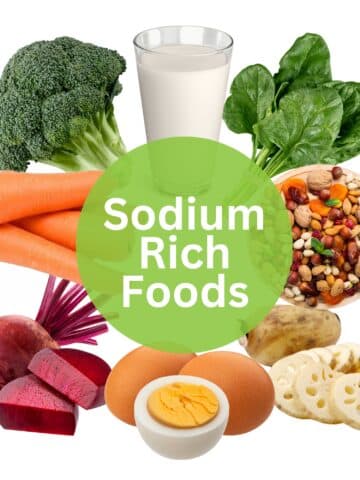



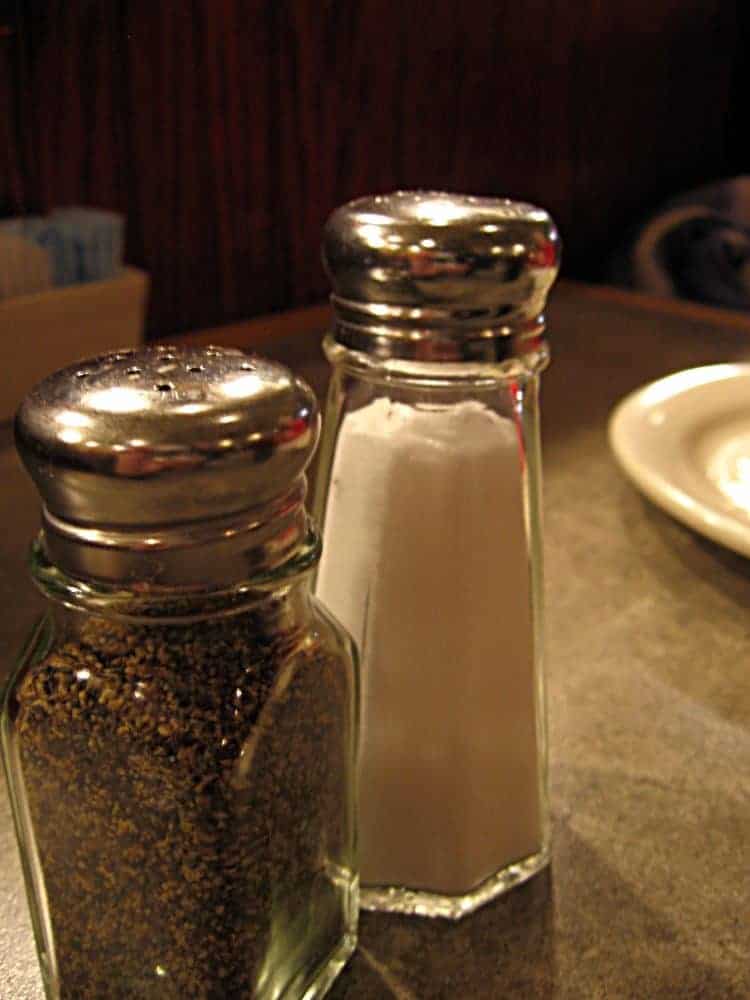
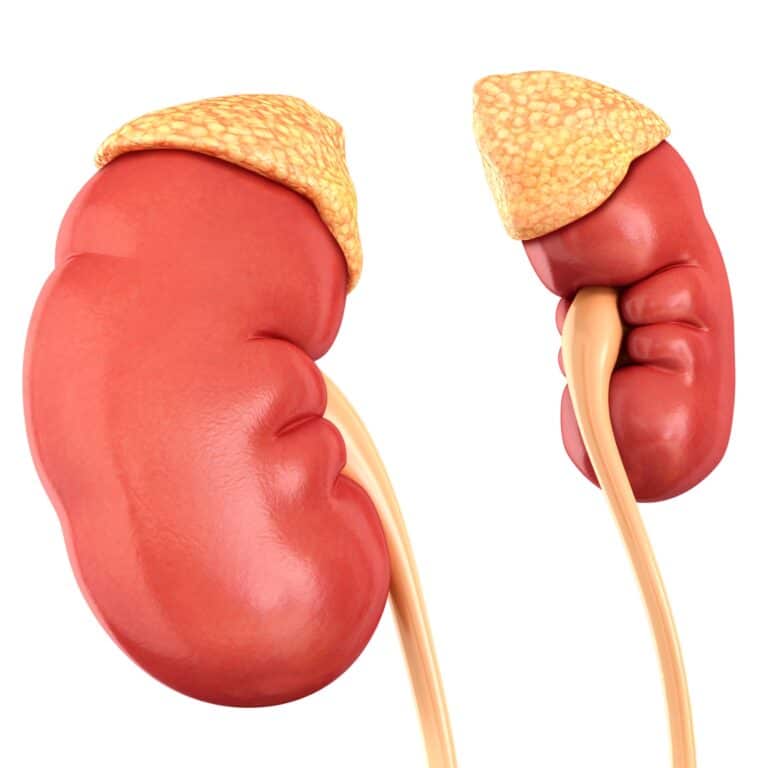

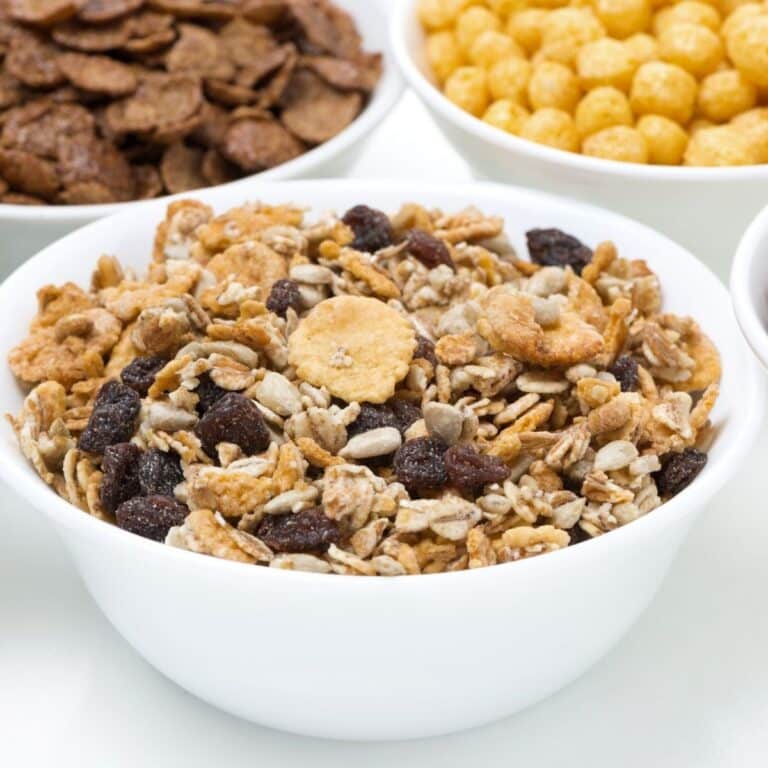
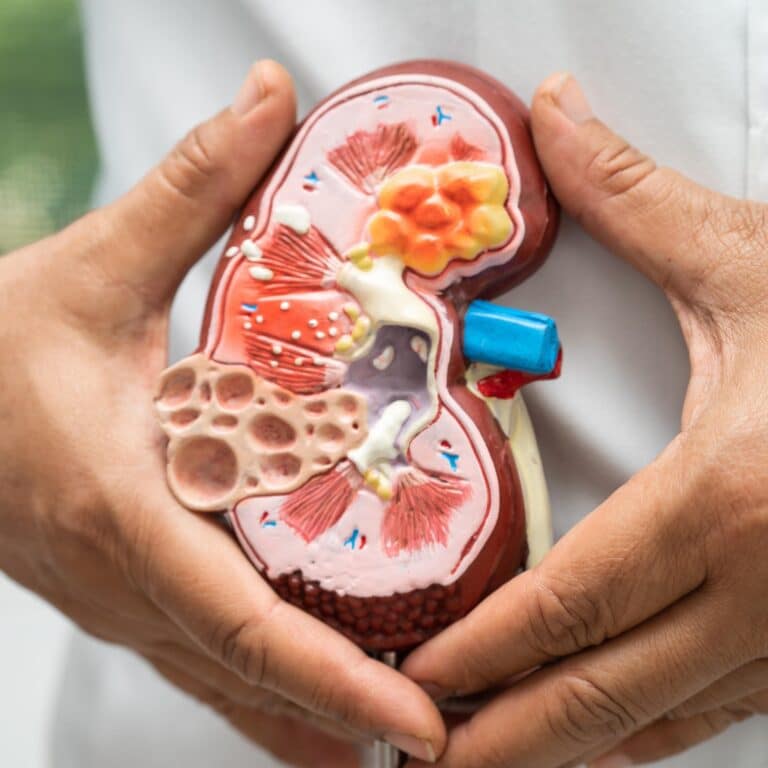


Its great to have this site that talks and teaches people on some ways to fight diabetes as well as kidney disease. As what i have experience, diabetes is a big cause of having a kidney disease.